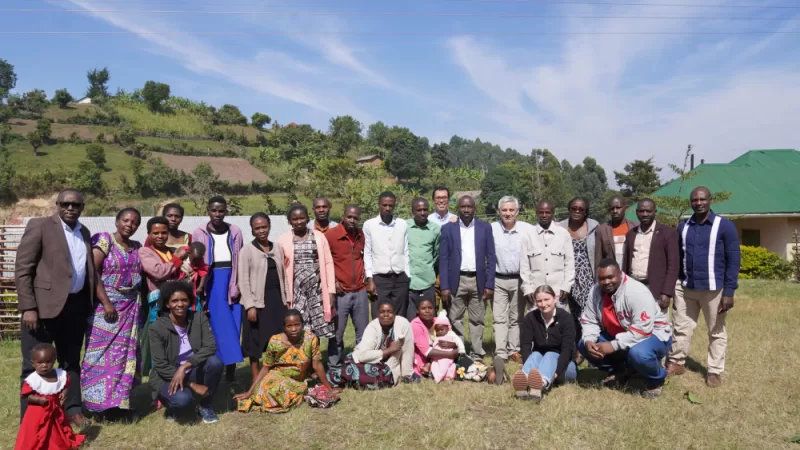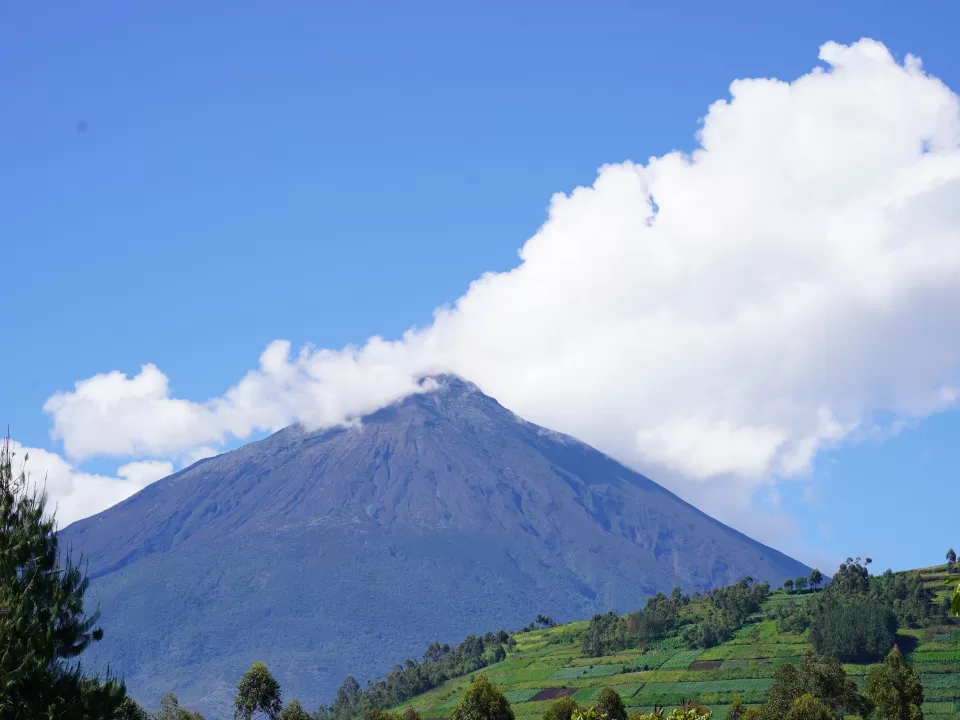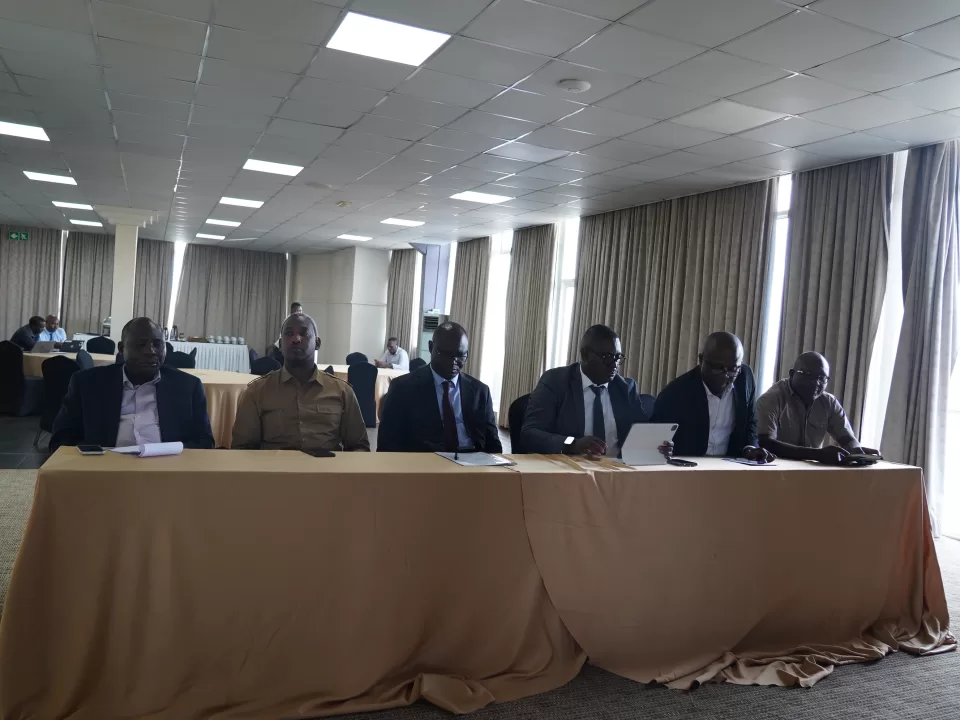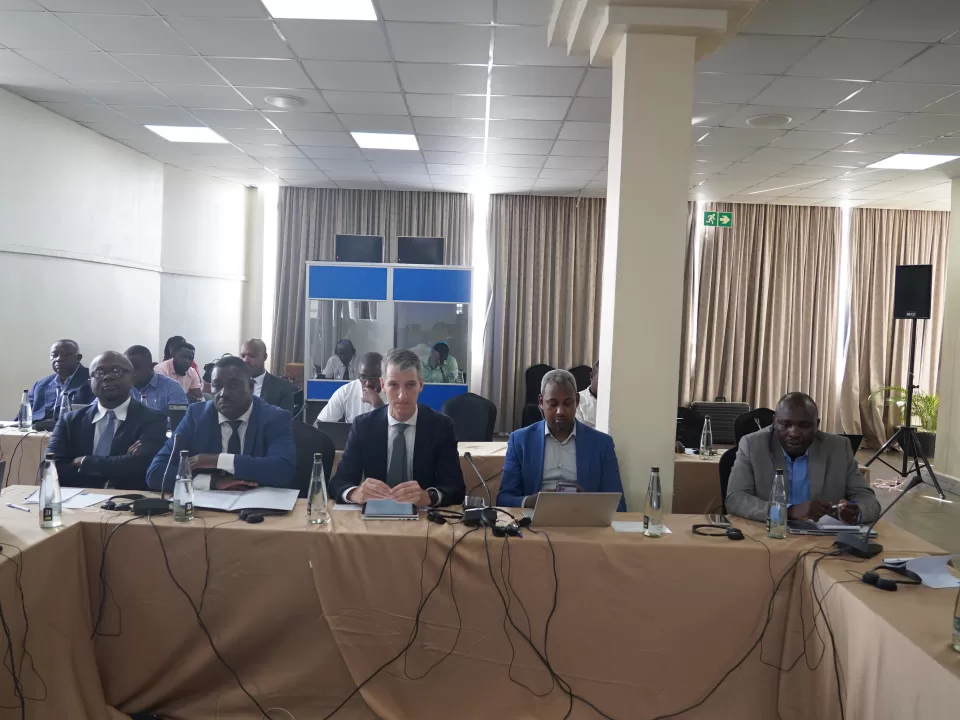Targeted Scenario Analysis, an approach believed to allow to change from Business As Usual to Sustainable Ecosystem Management for sustainable development in the Greater Virunga Landscape
Currently, small-scale crop farming remains main livelihood. Prolonged dry seasons because of climate change puts increased pressure on water resources, negatively affecting small-scale farmers. Additionally, there is increased human-wildlife conflict (HWC) because of crop raiding by species suffering consequences of climate change. Long-term livelihood income decreases and hunting of wildlife increases (either for source of food or as method to prevent crop raiding).
Shift to nature-based tourism/climate-smart agriculture reduces dependency on natural resources. Water tanks reduce impacts of lack of water resources and positively affect small-scale farmers. Effective buffer zone management reduces human-wildlife conflict with the addition of tea farming as an alternative source of income, preserving species populations and as a result increasing tourism in the region. Local livelihoods increase and food insecurity decreases, positively impacting revenue for communities and general wellbeing.
The Vanishing Treasures Programme to which Greater Virunga Transboundary Collaboration is amongst the key stakeholders, aims to enhance the resilience to climate change of vulnerable Virunga Mountains species, such as the iconic Mountain Gorilla while supporting local mountain communities who live alongside them. The Vanishing Treasures has set the following objectives:
- Improve the adaptive capacity of mountain ecosystems while maintaining related ecosystem services.
- Promote alternative livelihoods for local communities.
- Train wildlife managers in protected areas in climate-smart conservation, adaptation to Climate Change, and nature-based solutions.
- Improve communication between climate research and biodiversity conservation practitioners.
- Promote and develop a green infrastructure approach, including restoration of habitats & corridors, creation and maintenance of buffer zones and steppingstones, and rehabilitation of swamps and water catchment areas while increasing agricultural productivity or providing alternative forms of income to local communities.
Achieving the above-listed objectives include critical policy-related challenges. Therefore, it is indispensable for local leaders and decision-makers to understand the economics supporting policy reform to shift from unsustainable agricultural and livestock practices to more sustainable ecosystems and biodiversity-friendly livelihoods such as climate-smart agriculture, nature-based tourism, and other non-timber extracting activities. Thus, the Vanishing Treasures Programme will apply UNDP’s Targeted Scenario Analysis approach to respond to the growing demand from decision-makers and stakeholders for effective policy-relevant economic analysis tools to advance productive sectors’ policy reform and, therefore, the national Sustainable Development Goals. UNDP’s Targeted Scenario Analysis (TSA) offers a practical approach to connecting policy objectives with fit-for-purpose economic analysis. Targeted Scenario Analysis enables the conversion of economic data into sustainable sector development policy.
It is in this respect that the workshop was organized in Nkuringo from 12th to 14th July 2023, to allow the participants who mainly are the beneficiaries of the Vanishing Treasures Programme, to consider its achievements, use the data to craft the policy which shall be discussed in order to make a national policy which can be replicated and used elsewhere.
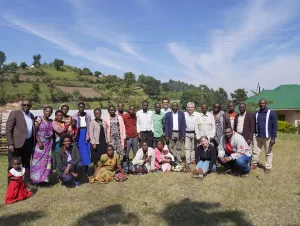
Nkringo TSA workshop- July 2023
The Targeted Scenario Analysis Inception workshop will start the Targeted Scenario Analysis by bringing decision-making and Vanishing Treasures’ stakeholders to understand how Targeted Scenario Analysis works and how it will be conducted in the Virunga landscape. The Targeted Scenario Analysis inception workshop is the most critical step of the Targeted Scenario Analysis methodology because it provides the opportunity to capture the decision-makers’s objectives in the Targeted Scenario Analysis and ensure that it responds to the specific policy needs of the decision-makers and the Vanishing Treasures’ stakeholders.
The Targeted Scenario Analysis workshop’s objective is to refine the scope of the Targeted Scenario Analysis study, including:
- Define and engage the decision makers (clients of the study).
- Identify the policy targets and questions to be addressed by the Targeted Scenario Analysis.
- Describe the Business As Usual (BAU) scenario and the Sustainable Ecosystem Management ( SEM) intervention.
- Advance with selecting criteria and indicators to construct the BAU and SEM scenarios and apply the economic analyses.
Consultations with decision-makers and leaders from Districts, Local Councils, Communities, and The Parks Authority are essential to achieve the Targeted Scenario Analysis objective.
Once this will be achieved, sustainability of interventions will be ensured leading to sustainable development.

